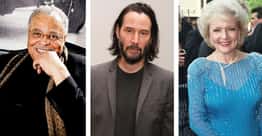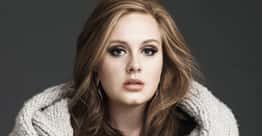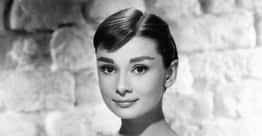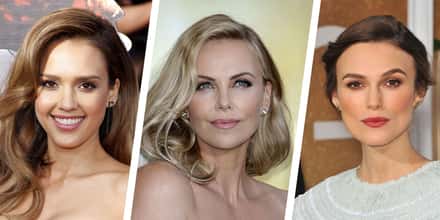
The Three Dumbledore Actors From The 'Harry Potter' Movies, Ranked By Magical Presence
Copy link
Albus Dumbledore is likely the most important character in the Wizarding World after Harry Potter. He makes the most appearances in the entire franchise, so fans have seen the character across several decades. And he's been played by three talented actors: Richard Harris, Michael Gambon, and Jude Law.
Fans and critics vary between their favorite version. Each Dumbledore has his strengths and weaknesses, so this list takes a deep look into each aspect. We're talking about the pros and cons of the actors and their performances, how each version of the character comes across, which quotes fans might remember the most (yes, there's a "DID YOU PUT YOUR NAME IN THE GOBLET OF FIRE?!" reference), and what critics liked and disliked about them.
So, put on your hats and robes, and let's head over to the Wizarding World to see which actor deserves that Chocolate Frog card the most.
- 114 VOTESPhoto: Warner Bros. Pictures
Movies He Was In: Harry Potter and the Sorcerer's Stone, Harry Potter and the Chamber of Secrets
Pros As Dumbledore: Richard Harris's version is the most child-friendly Dumbledore, with a tenderness that makes it easy to see this version as an eccentric grandpa-type personality. He gives off an air of compassion with his soft-spoken mannerisms, such as lightly patting Harry on the head while telling him how much his mother loved him, or when he speaks gently to Harry when revealing the truth about the Mirror of Erised.
Harris's Dumbledore also looks the part the best out of all the actors. His long, colored, flowing apparel and pointy hat are reminiscent of the Dumbledore described in the books. He carries himself with a light but authoritative touch, which the book version is known to do also, as he never rushes or shows any sense of urgency.
This version of Dumbledore is faithful to the source material because there's no hint of any ulterior motives. Harris played the role straight and without any hint of cynicism, so he comes across as amiable as Harry perceives him in the earlier stages of their relationship.
Cons As Dumbledore: The main problem with Harris's interpretation is that it's incongruous with high-impact situations. Dumbledore's kindly, easygoing attitude contrasts heavily with later parts of the story. It's hard to imagine him in moments like the duel with Voldemort, or during Dumbledore's panic attack in the cave. Although the eclectic Irish actor gave a layered performance, the dynamics are all positive and subtle, meaning he lacks that edge Dumbledore has when he's feeling fierce.
Harris also scores low in the mischievousness Dumbledore is known to have. Even in earlier installments, Dumbledore makes lighthearted comments that make it seem as if he has an inside joke; Harris's version just says it like it is. It's hard to imagine this Dumbledore having had a youth - everything about him relates to the Wise Old Man/Old Master trope.
This Dumbledore doesn't have any real flaws, which is detrimental to making him seem like a person with greater depth. While it's not entirely Harris's fault, as the source material didn't call for Dumbledore to be as open during this time, the actor still has a more self-contained attitude and doesn't seem willing to break away from a defined portrayal of the character.
Is This Version of Dumbledore Secretly a Villain? Depends on which side you're on. This Dumbledore is pretty much the opposite of a bad guy from the perspective of the heroes. Every time he's on-screen, he pretty much arrives to fix any mess or reassure Harry that he isn't in trouble.
Of course, if you're a Slytherin, then he'll seem like the biggest jerk of all time for pulling the rug from under the house's feet at the last minute to gift Gryffindor the House Cup. According to him, studying isn't as important as being good at chess or trying to have a fistfight with your friend. It sounds silly, but that's how this Dumbledore rolls.
Best Quotes:
Siiiilllleeeennnccceeee!
It takes a great deal of bravery to stand up to our enemies, but just as much to stand up to our friends.
Favorite Candy? Sherbet lemons and Bertie Bott's Every Flavour Beans.
Fun To Grab a Butterbeer With? Sure, when he isn't eating earwax-flavored jellybeans, he might have time for a firewhisky. In addition, the guy really knows how to throw a feast!
Did This Dumbledore Understand The Assignment? Yes. Dumbledore had to be likable and a safe place for Harry at the beginning of the series, and Harris's version provides just that. He would have needed to diversify his skill set in later movies, but we'll sadly never know how that would have turned out, due to the actor's 2002 passing.
Critic Reviews: Harris won positive acclaim for his portrayal of the illustrious Albus Dumbledore. The general consensus was that he dove into the character well, despite the larger-than-life premise of the movie. Roger Ebert singled out the adult cast, including Harris, for playing their roles with great believability and enough grace for the young cast to share the screen without being overwhelmed. Other reviewers, like Rolling Stone's Peter Travers, felt that Harris had a “poetic elegance” as the wizard.
- 216 VOTESPhoto: Warner Bros. Pictures
Movies He Was In: Fantastic Beasts: The Crimes of Grindelwald, Fantastic Beasts: The Secrets of Dumbledore
Pros As Dumbledore: Jude Law's Dumbledore is the most human depiction of the character. He brings immense sensitivity, class, and self-reflection, as this version deals with regret and melancholy. Watching Dumbledore behave as a normal person with relatable thoughts and feelings is a welcome departure that refreshes the character's outlook. Law's version is similar to Richard Harris's when it comes to dialogue delivery, being soft-spoken and using carefully chosen words.
Despite only appearing in two films, this iteration has an arc that showcases his development. He goes from a guarded, outwardly optimistic person to a man willing to show vulnerability and his emotional side. He also shows hints of frustration and temper, which contribute to his relatable charm. A big plus is his stylistic choice, easily making Law's version the sharpest-dressed Dumbledore yet.
While the Harry Potter movies showed Dumbledore as an unromantic person, Law's version has a romantic side. Because Dumbledore's and Grindelwald's relationship was a failure, Law portrays the character with reluctant feelings toward his former lover. It's interesting to see Dumbledore show a particular weakness that isn't tied to magic, but to a more human issue people can understand and empathize with.
Cons As Dumbledore: Law is much younger than his predecessors, but his physicality is lacking in the role. His duel scenes aren't nearly as engrossing as they could have been, lacking the casual elegance and flair that Michael Gambon did better. Instead, his battle sequences are similar to every other wizard, which shouldn't be the case, as Dumbledore's wand-work is far superior to anyone else's.
Law's Dumbledore doesn't have the mysterious aura the character usually commands. While this is because the story is more personal to him, he doesn't carry himself with the surety Dumbledore is known for. The future Hogwarts headmaster was already known as one of the greatest wizards of all time, but it doesn't seem like viewers would get that, if it weren't already mentioned. Law sacrificed Dumbledore's poise in favor of vulnerability. There's also a slight lack of chemistry between him and the supporting cast, and Dumbledore seems a little out of place beyond the walls of Hogwarts.
Is This Version of Dumbledore Secretly a Villain? No. This Dumbledore is designed to be an everyman archetype. He's the kind of guy you call when you're stuck in a bind. He's also the sort of person with whom you'll feel like you can open up without being judged. Although he does have schemes in mind, they aren't manipulative like those of the older Dumbledores.
Best Quote:
Funny how historic days seem so ordinary when you're living them.
Favorite Candy? Anything overly sugary - seeing how much of it he likes to put in his tea.
Fun To Grab a Butterbeer With? Yes and no. He's good to drink with if you like discussing heavy and emotional topics. But when it comes to something fun, you're better off hanging out with the Muggle Jacob Kowalski, because Dumbledore and his many regrets will bring the mood down.
Did This Dumbledore Understand The Assignment? Yes. The Fantastic Beasts series needed a link to Hogwarts to tie the Wizarding World franchise together, and this Dumbledore provides that. He's also supposed to be a younger version who hasn't learned to live with his mistakes, so his melancholic disposition makes sense.
Critic Reviews: Law received rave reviews for his performance. The consensus is that his take on a contemplative, emotional Dumbledore is a refreshing side of the wizard. Positive reviews pointed out that Law brings a “subtle sense of emotion” that brims beneath the surface without becoming the only thing that stands out about him. In further praise, critics claimed that Law has a “much-needed sparkle” that balances the other characters' personalities.
Law received very few negative reviews, but the less-positive ones felt his relationship with Grindelwald wasn't fully explored, and that the “secrets” of Dumbledore simply being feelings for his former flame was a cop-out. In addition, Law's decision to alter his accent for a slightly different one wasn't well received by critics, who thought he was trying to imitate Gambon.
- 322 VOTESPhoto: Warner Bros. Pictures
Movies He Was In: Harry Potter and the Prisoner of Azkaban, Harry Potter and the Goblet of Fire, Harry Potter and the Order of the Phoenix, Harry Potter and the Half-Blood Prince, Harry Potter and the Deathly Hallows - Part 2.
Pros As Dumbledore: Michael Gambon's Dumbledore has a commanding presence whenever he shows up. The Irish-English actor makes booming statements that have characters reacting centrally to Dumbledore rather than anything else in the scene. This version of the wizard looks the part of the only person Voldemort feared, showing traces of ruthlessness and a clear rage when he's had enough.
Gambon also adds the humor Dumbledore is known for. He drops a few witty remarks when others least expect it, adding some levity to tense situations. More than anything, it's Gambon's physicality that brings the winning quality to his portrayal. The actor shines in sequences where Dumbledore uses magic, particularly the duel between him and Voldemort. Gambon doesn't exaggerate the character's mannerisms during battle, simply focusing on aggressive expressions to convey Dumbledore's attack mode.
By Half-Blood Prince, Gambon develops a certain chemistry with Daniel Radcliffe. The duo's scenes give off the teacher-protégé dynamic, as Gambon takes the leading role while Radcliffe plays off the former's dialogue. Admittedly, the actor took a few movies to really sink his teeth into being Dumbledore, but he shone bright by the end.
Cons As Dumbledore: In Prisoner of Azkaban and Goblet of Fire, Gambon seems to be in his own headspace. Here, Dumbledore is too loud and gnarled for comfort, coming across nothing like his warm self from the previous two movies. Because the character didn't need to be so pessimistic and distant in terms of the story, Gambon comes across as rather mean-spirited in several scenes.
Again, in his first few movies, Gambon's delivery of Dumbledore's humor is relatively awkward; his scene partners don't always react well, and these moments sometimes feel like weirdly placed fillers. Dumbledore needed a calmness about him during scenes like the aftermath of Nagini attacking Arthur Weasley, and Harry's name coming out of the Goblet of Fire; Gambon didn't portray them accurately and went super campy with Dumbledore's aloof mannerisms.
Is This Version of Dumbledore Secretly a Villain? Yes. This is the Dumbledore who plots Harry's demise at Voldemort's hands behind his back. Even before that, Gambon's aggressive portrayal makes audiences perceive him as an unfriendly Dumbledore who only engages with characters he deems useful. His betrayal of Harry is hand-waved over in their final interaction, so he still seems like an opportunist rather than a genuine father figure, as Harry had thought him to be.
Best Quotes:
Do not pity the dead, Harry. Pity the living and above all, those who live without love.
Harry, DID YOU PUT YOUR NAME IN THE GOBLET OF FIRE?!
Favorite Candy? Cockroach Clusters (book fans of Goblet of Fire know what this means).
Fun To Grab a Butterbeer With? Yes and no. In his first two movies, this Dumbledore seems so angry that he's more likely to throw the drink in your face. However, he mellows down considerably in the next two films, and he and Harry have some fun adventures where Dumbledore comes across as a cool guy - a 115-year-old guy who hangs out with a 16-year-old boy, but cool nonetheless.
Did This Dumbledore Understand The Assignment? No. Even when Gambon did well in the later movies, he doesn't portray Dumbledore as he is in the books. That's not necessarily a bad thing, because he added a new spin on the character, but original fans will find plenty flaws in this version. Some are still not over his “DID YOU PUT YOUR NAME IN THE GOBLET OF FIRE” moment, and it's hard to blame them.
Critic Reviews: Gambon's performance received progressively improved reviews with each entry. He initially faced criticism for taking liberties with interpreting Dumbledore. Some critics argued that Gambon simply didn't care about how he portrayed the wizard due to the contrast between his take and the source material - Gambon never actually read the books before playing the role.
Positive reviews laud the actor for providing Dumbledore with a “darker edge” that ties into the story's own turn toward more mature tones. Other critics thought this Dumbledore was Machiavellian because he was cunning, no-nonsense, and didn't mince words. Gambon was praised for making the character look like a threat and someone who's on the heroes' side, yet isn't exactly good in the traditional sense.
























